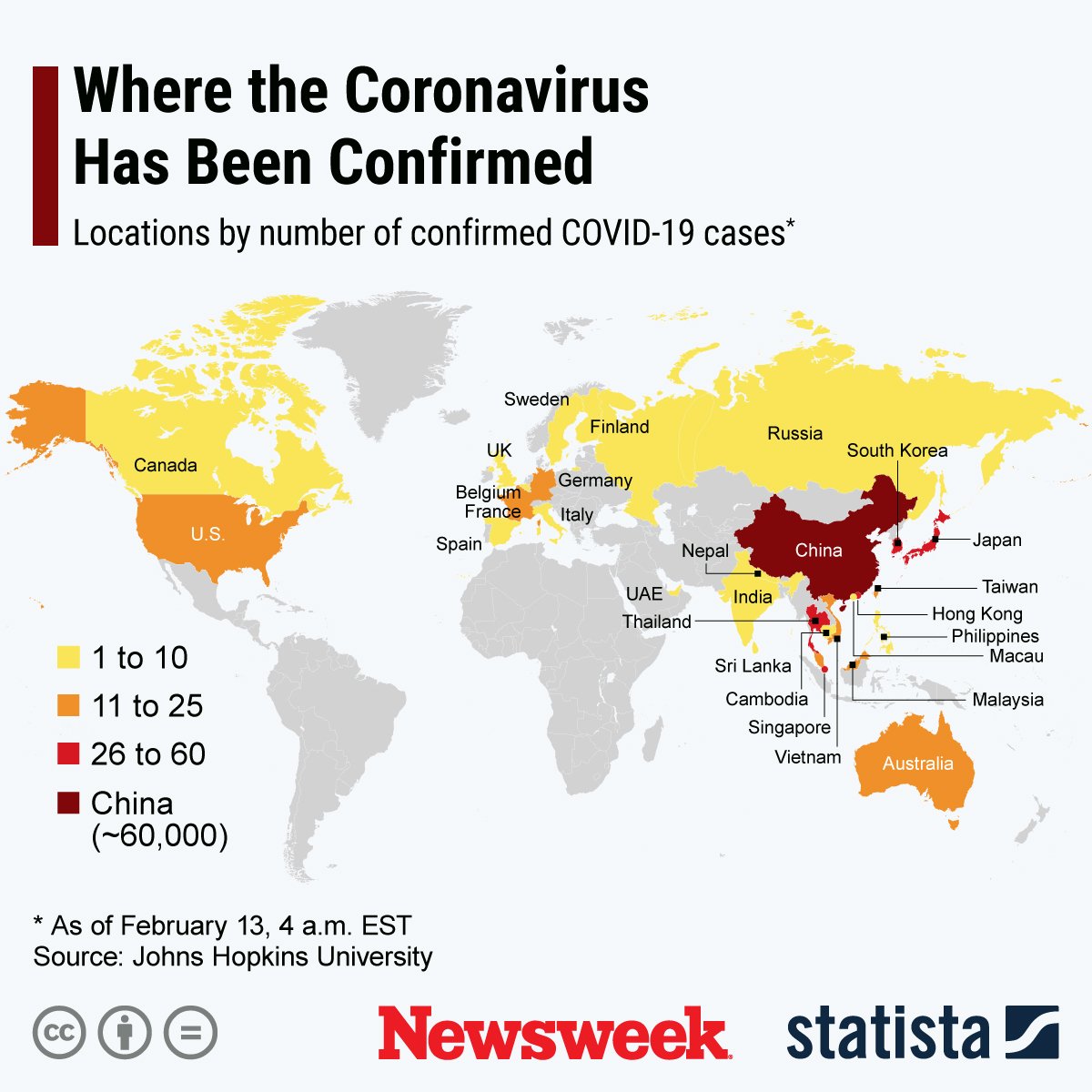China has experienced its deadliest day of the new coronavirus outbreak, prompting Shiyan city to adopt "wartime measures" which include banning residents from leaving their homes.
On Wednesday in the city of Wuhan, Hubei province, some 242 people died and there were 14,840 new cases of the bug recently named COVID-19, the AFP news agency reported citing government officials.
The total death toll in mainland China is now at 1,367 in 59,822 cases. Only two fatalities have occurred outside of mainland China since the outbreak started, in the Philippines and Hong Kong, putting the number of people who have died globally at 1,369 in 60,347 cases.
Officials in Hubei at the epicenter of the oubtreak said the spike in cases was due to a decision to broaden the definition to include those diagnosed with lung scans.
Previous suspected cases were reassessed, they said, which indicated the new figure included those tested in the past, according to AFP. Previously, healthcare workers diagnosed the condition with laboratory tests, but these are in short supply.
Shiyan Lockdown
Officials in a district in the central Hubei city of Shiyan have introduced "wartime measures," banning anyone not directly involved in tackling the disease from leaving their homes, The Guardian reported citing a government notice.
Buildings and residential areas in the district will be closed off on Thursday, with security personnel carrying out 24-hour monitoring. Those who break the rules will be "detained without exception."
The notice read: "Residents without prior approval are forbidden from leaving their home, building or residential compound."
China's state-run Global Times newspaper reported the order will be in place for the next 14 days. The move was in response to 137 confirmed cases of COVID-19 in the area, the second highest number in the city. On Wednesday, 562 were reported there in total.
Local neighborhood committees will deliver basic items to residents at set times with set prices, and will help people buy medication which they urgently need, according to the Global Times.
Those who come down with a fever, one of the symptoms of COVID-19, will be sent to a medical observation point in the district. Officials hope stopping people leaving their homes will stop the infection from spreading, according to the announcement seen by the Global Times.
Coronavirus Outbreak Response
China's Communist Party responded to the crisis by firing two high-ranking officials in Hubei province, where the disease first came to the attention of health authorities late last year when workers at a wholesale seafood market started falling ill.
Since then, it has spread to over 25 countries and territories, including the U.S., as shown in the infographic below by Statista.

Although the World Health Organization has praised China for its response to the outbreak and its transparency, particularly after its secrecy during the 2003 SARS epidemic, the authorities in Wuhan have been criticized for initially downplaying the outbreak.
Yun Jiang, a researcher at the Australian National University's Australian Centre on China in the World, told AFP that the new lung-scan screening methods might be a "practical measure" to help with supply issues. She said she doesn't believe the numbers were doctored for political reasons, but said "the numbers themselves may not be so trustworthy."
Professor Sam Crane, an expert in Chinese politics and ancient philosophy at Williams College, told The Guardian the change is positive from the perspective of medical transparency, "but it raises a lot of new questions."
"I suspect many people in China will see this as another reason to not believe what the government says," he said.

Uncommon Knowledge
Newsweek is committed to challenging conventional wisdom and finding connections in the search for common ground.
Newsweek is committed to challenging conventional wisdom and finding connections in the search for common ground.
About the writer
Kashmira Gander is Deputy Science Editor at Newsweek. Her interests include health, gender, LGBTQIA+ issues, human rights, subcultures, music, and lifestyle. Her ... Read more





